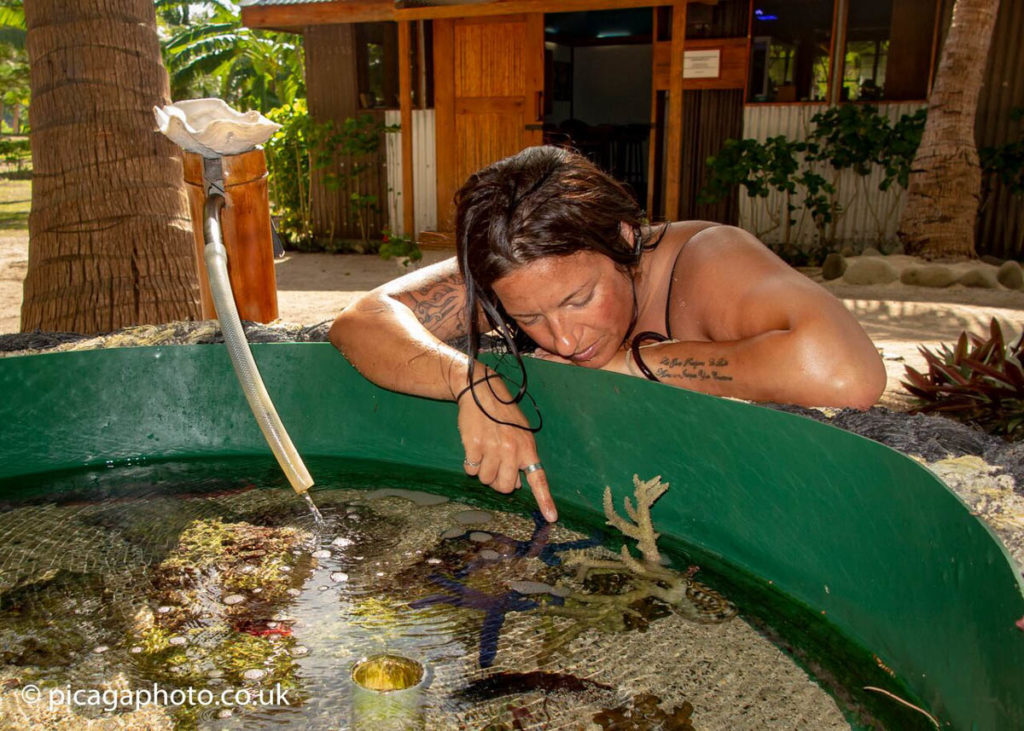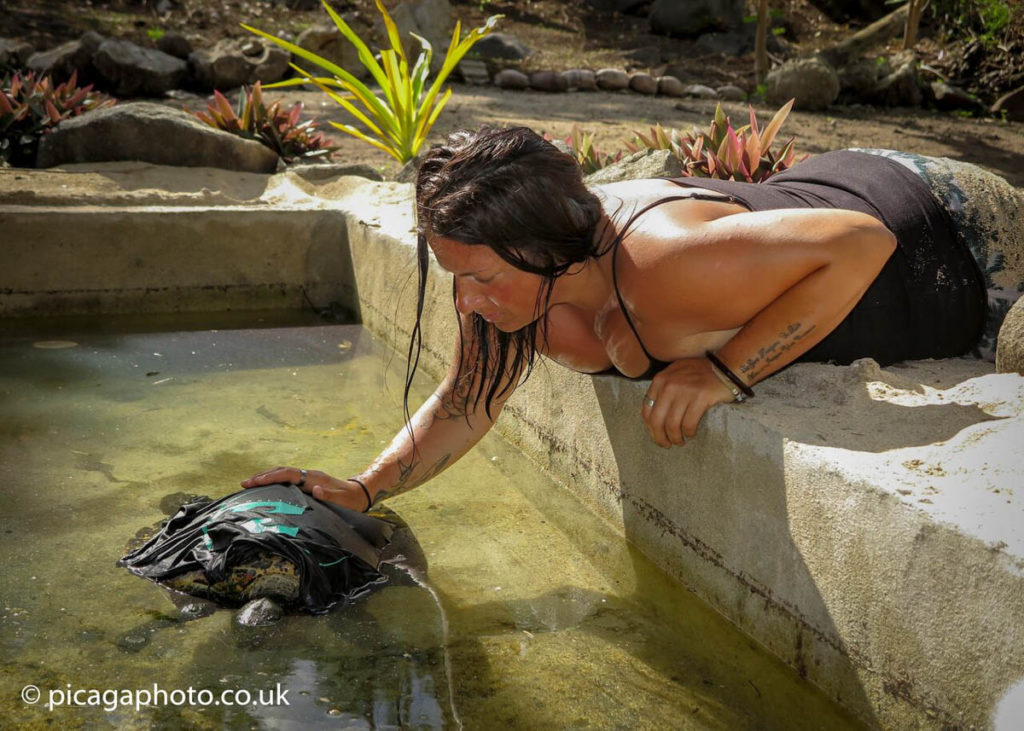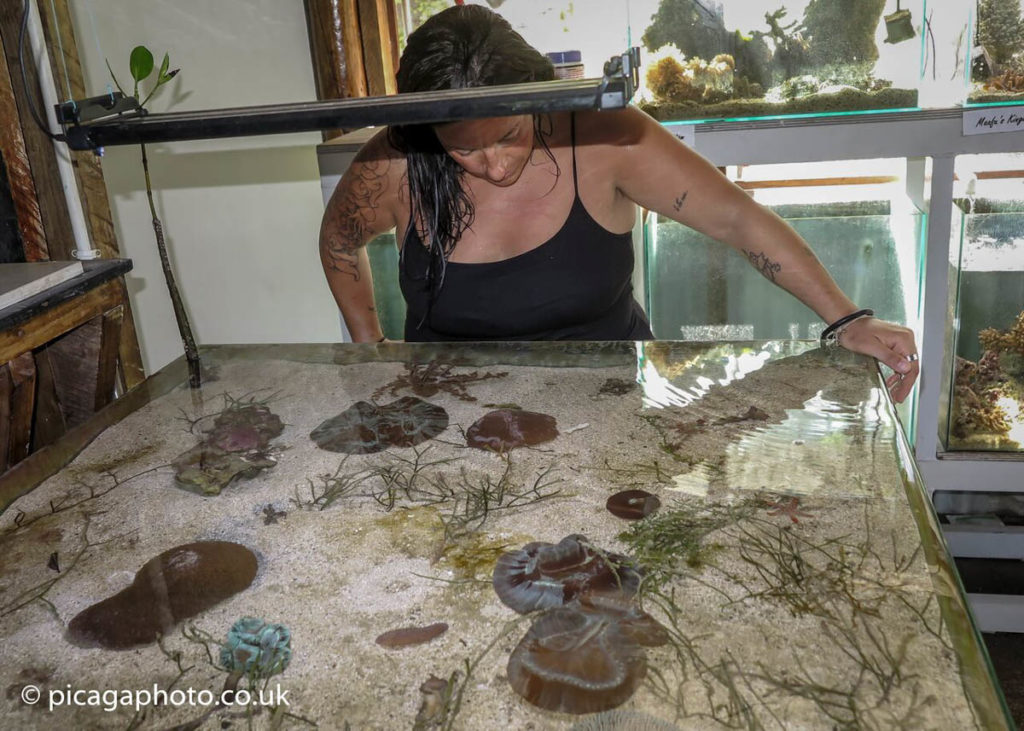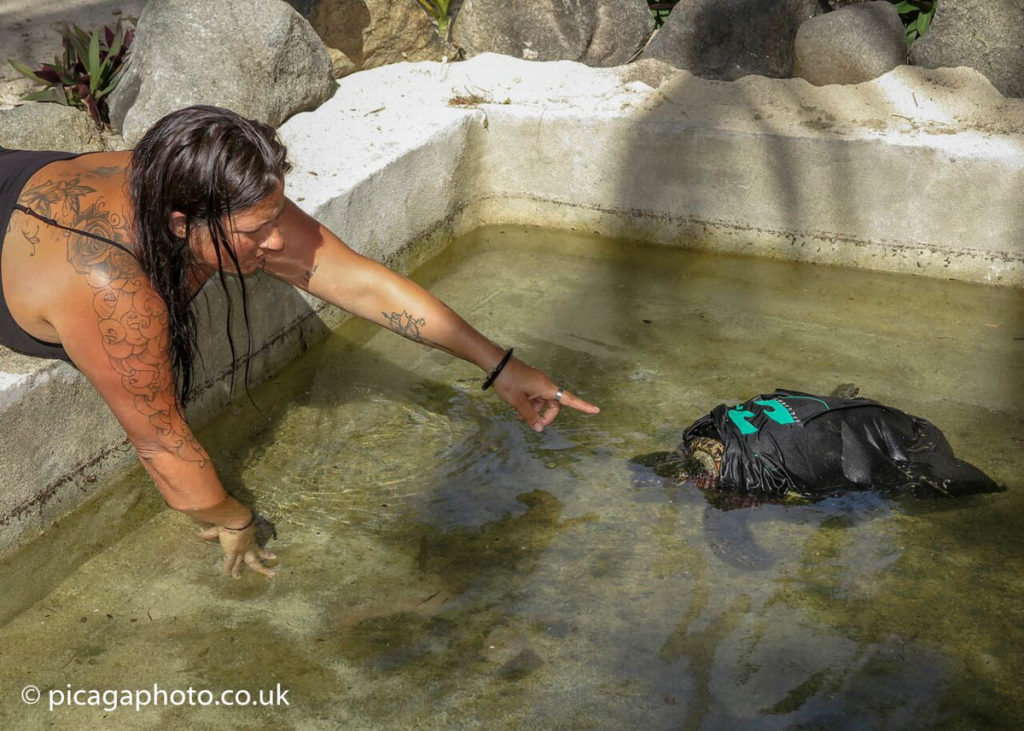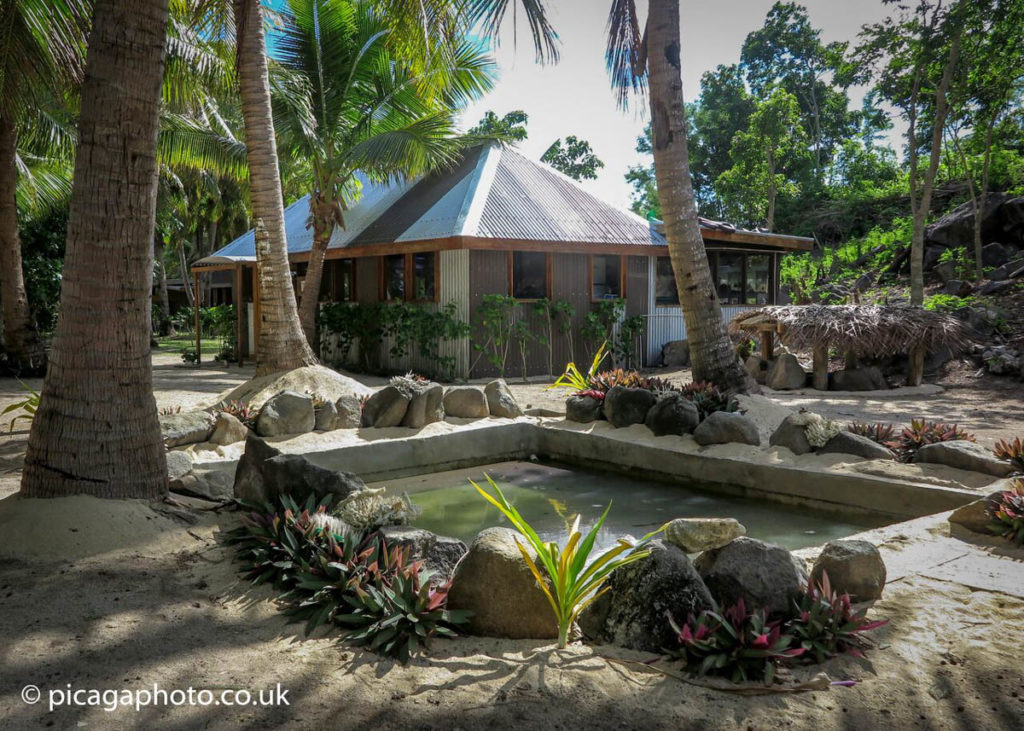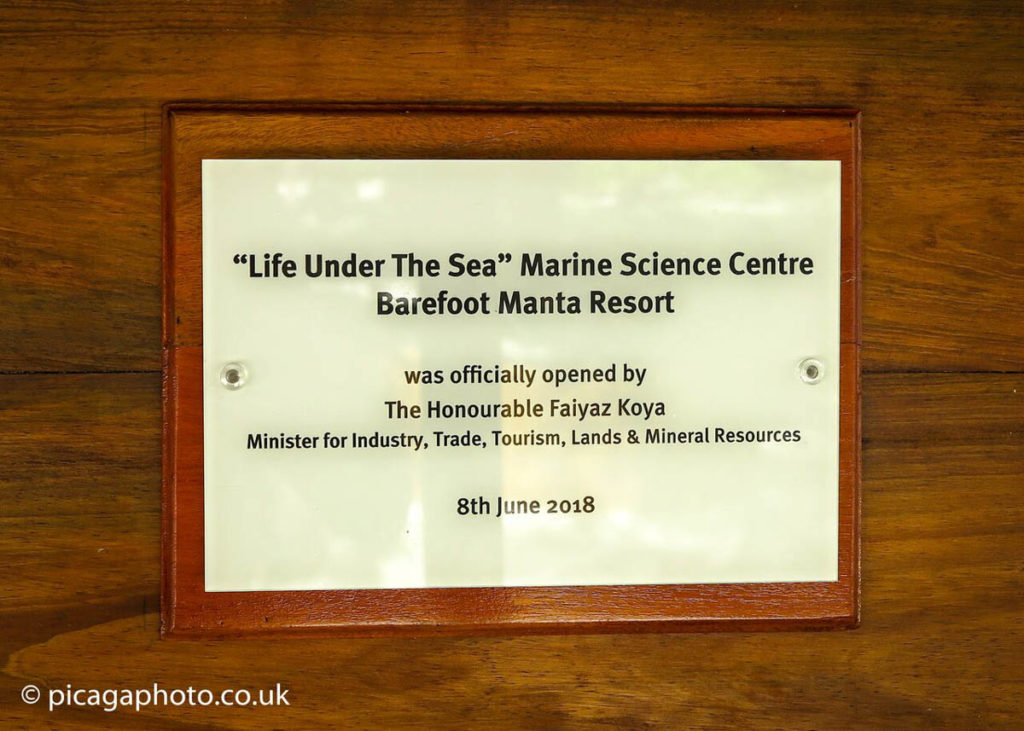Barefoot Manta Island, known traditionally as Drawaqa Island, lies in the Southern Yasawa Islands of Fiji. The breath-taking coral gardens, situated just off the coastline, are among the finest in the Fijian isles. Barefoot Manta Island offers a tranquil environment, with the gentle sound of the waves lapping the shore. The island lodge is the perfect destination for nature lovers in search of a one of the few Fijian islands unspoiled by man. We checked out their brand new marine science lab and it was wonderful!
The new lab has been built to offer island hoppers more of a chance to get involved in marine conservation. It is vital for this part of the world and its tourism industry to be active in conserving its ocean if it is to remain healthy as well as remain a popular destination for marine enthusiasts. The lab nestled on the island near one of its beaches a short walk from the main lodge is host to various species of fish and corals and a very poorly turtle that is healing in part of a rehabilitation programme.
We chatted to guests about how interesting and useful they found the lab and multiple guests told us that the free tours were inspiring, educational and fun. Parents traveling with young children told us that they had picked the island specifically for its interest in marine conservation, the lab and its magical manta snorkelling tours.
The saddest part of our visit was meeting the poorly turtle held in the confines of a small pool with a t shirt covering its shell for protection. This natural beauty was entangled, we were told, in fishing line and a victim of swallowing micro plastics. We all know the problems of plastics in the ocean and the damage they do to the natural environment but really stopping to think about the damage happening is terrifying. Sea turtles ingest plastics and their digestive tracts are blocked resulting in starvation and often death.
Sea turtles obtain buoyancy disorders which are caused by trapped gas in their digestive systems which means that they cannot properly submerge. Some people call this having ‘float’ or ‘bubble butt’. Not being able to dive leaves them vulnerable to boat strikes, entanglement and predation.
Eighty percent of plastic debris comes from land, according to the Sea Turtle Conservancy, getting picked up by wind or washed out to sea from our beaches, streets and roads. Plastic debris includes plastic bags, balloons, bottles, straws, packaging and other material as well as displaced fishing gear. There are currently over 100 million tons of plastic estimated in the world’s oceans and meeting this sick turtle was a striking reminder that this problem is very real and very current.
Barefoot Manta are doing a great job at encouraging people to take notice, to take a few minutes out of their holiday to learn about what’s going on out in the Yasawas and about how they can help. This really is a very impactful approach and is encouraging tourists travel with purpose.
Learn more at: https://barefootmantafiji.com/ and https://barefootmantafiji.com/marine-experience/
Photography by Radoslaw Krol



